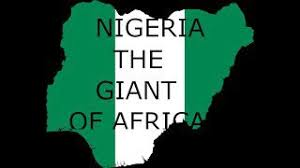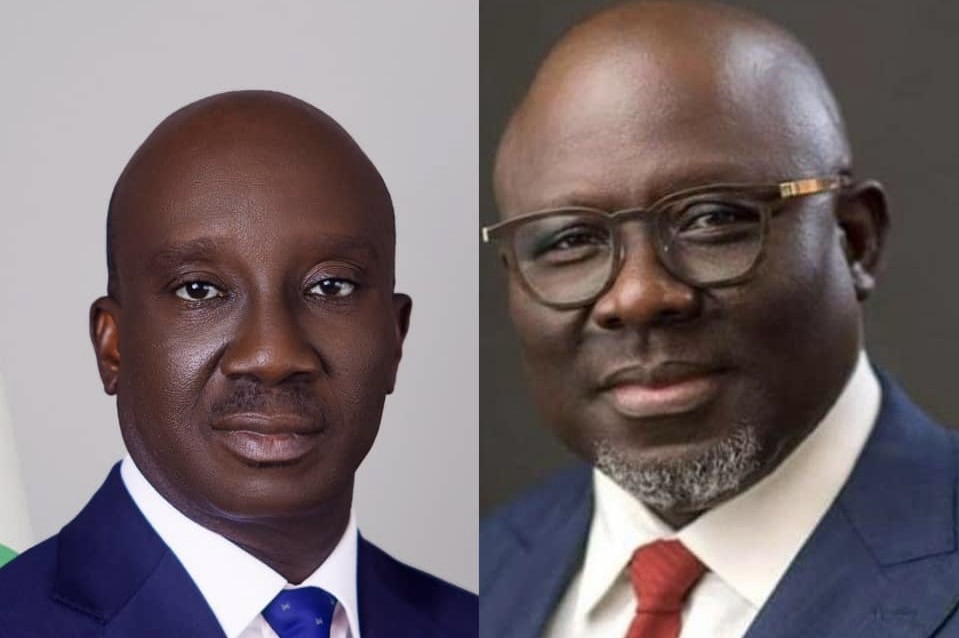She was destined to be a giant of a country. Nature has bestowed greatness upon her. All the trappings of what it takes to be a great country God has given her. Some of the so-called ‘First and Second World Countries’ do not have anything close to the amount and varieties of the human and natural resources she has. This supposedly giant ought to sneeze and some countries would catch cold.
Countries with whom she was almost at par at independence on October 1, 1960, have since left her behind in most indices of human development. Even fellow African countries like Ghana, South Africa, war-torn Libya, Rwanda, among others, have upped the ante of development. But she still remains a laggard and playing the catch-up game.
Given its present state of affairs, she is a hugely indebted country; deficient in infrastructure, with many of its citizens in foreign countries in search of greener pastures because there are no jobs for them in their country; imports almost everything and hardly produces for export, except crude oil which it cannot refine for the benefit of the majority; its currency, the Naira, bows in obeisance when Ghana’s Cedi, Chinese Yuan, America’s Dollar, Europe’s Euro and Britain’s Pound Sterling speak; she is unable to feed its citizens; exhibits crass ineptitude in keeping at bay activities of non-state actors who are threatening its existence; some of its ethnic nationalities are seeking balkanization of the country and gradually sliding into a failed State.
These are some of the sad realities of Nigeria, Africa’s most populous country and the most populous black nation in the world.
For 64 years, Nigeria has tried various systems of government – Parliamentary, Military, Presidential but none seemed to have satisfied the yearnings and aspirations of Nigerians for good governance. It has had various Conferences to address the National Question about its unity and challenges. Nigeria has pretentiously tried to forget about the comments of some of its founding fathers that the country is not work-in-progress but cannot work.
We recall that aftermath of the amalgamation of the Northern and Southern Protectorates, Sir Ahmadu Bello described Nigeria as ‘the mistake of 1914’; Chief Obafemi Awolowo opined that ‘Nigeria is a mere geographical expression’ while Yakubu Gowon, following the 1966 crises which culminated in the Nigerian Civil War, was emphatic that ‘the basis of unity was no longer there.’ We also cannot forget that in 1948, Sir Abubakar Tafawa Balewa said: ‘Since 1914, the British Government has been trying to make Nigeria into one country, but the Nigerian people themselves are historically different in their backgrounds, in their religious beliefs and customs and do not show themselves any sign of willingness to unite…Nigerian unity is a British intention for the country.’
Suffice to add that at 64, Nigeria ought to be a united country. Rather, the centrifugal cleavages which divide Nigeria seem to be waxing stronger than the centripetal forces which ought to unite us.
In spite of Nigeria’s multifarious challenges, there are incurable optimists who still recall the days of yore and believe that Nigeria is passing through a phase and that ‘dead bones will rise again.’ They remind naysayers of the ‘good old days’ of Nigeria. For example, they claim there was a time when Malaysia, one of the Asian Tigers, came to the Nigerian Institute for Oil Palm Research (NIFOR), near Benin City, and collected oil palm seedlings. Nevertheless, today Malaysia is an exporter of palm oil while Nigeria is an importer of the same product.
With nostalgia, they tell us that time was when many companies and industries, foreign and local, existed in different parts of Nigeria, providing jobs for teeming Nigerian youths. However, today most of the companies have exited Nigeria or closed because of unfavourable business climate. In their places are centres of worship where Nigerians now go to pray for jobs. What an irony!
Truth be told: Nigerians are gradually losing hope in Nigeria and cannot continue to dwell in the past. The future does not seem bright. That explains the ‘japa syndrome’, (exodus of Nigerians overseas) by hook or crook. It is now or a little above the poverty capital of the world. With weaponization of poverty by the ruling elites against the masses, many Nigerians barely survive on less than one dollar a day, living from hand to mouth, not sure of when and where the next meal would come from.
Nigerians are resilient people. They just need nationalistic leaders who would purge themselves of their unbridled corruption and galvanize the masses to unleash their energies and talents into productive ventures. Sadly, Nigeria’s political class does not seem yet satisfied with their thievery. For as Franz Fanon puts it: ‘Today, the vultures are too numerous and too voracious in proportion to the lean spoils of national wealth’.
As Nigeria marks its 64th independence anniversary, the collective task of ordinary Nigerians is to ensure good governance from those saddled with the responsibility and continually interrogate and expose the embezzlement of funds by public officials so that very soon Nigeria will rise again. Let us be hopeful with the evergreen lines of the Chinese philosopher, Confucius: ‘Our greatest glory is not in never falling but in rising each time we fall’. May this dwarf of a country called Nigeria rise again to take its pride of place among the comity of giants in the not so distant future.


